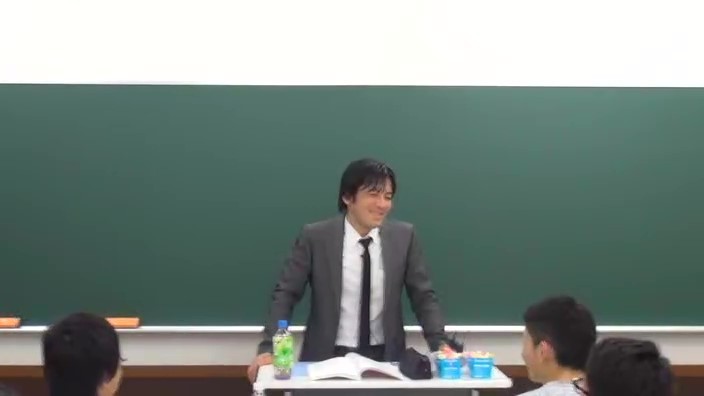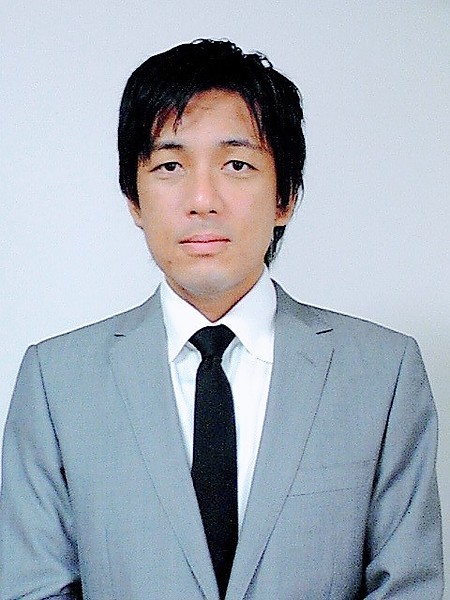大学入試 アウトプット英単語 ⑦
本記事は独学・国内学習による
英検1級保持者が書きました。
前回の続きです。
口頭で1語補って、文を音読してください。
日本語と英語の発想の違いも意識してください。
051
彼の給料は家族を養っていくにはあまりにも少ない。
His salary is too ( ) to support his family.
His salary is too low to support his family.
▸ lowには「給料が安い」の意がある
cheapは「品物などが安い」の意
His salary is too low to sustain his family.
His salary is too low to provide for his family.
052
少なからぬ人々がその結婚式に参加した。
( ) a ( ) people attended the wedding ceremony.
Not [Quite] a few people attended the wedding ceremony.
▸ not a few+複数名詞「かなりの数の」
Not quite a few people attended the wedding ceremony.
Not a few people attended the wedding ceremony.
053
日本人は一人ではめったに旅行に出ません。
Japanese people ( ) ever go on a trip alone.
Japanese people hardly [scarcely] ever go on a trip alone.
▸ hardly[scarcely] ever「めったに…ない」〈程度〉
seldom[rarely]〈頻度〉
Japanese people hardly ever go on a trip alone.
Japanese people scarcely ever go on a trip alone.
054
「少しお金を貸してくれませんか」
「もちろんいいですよ,いくら必要なのですか」
“Can you ( ) me some money?”
“Of course, how much do you need?”
“Can you lend me some money?”
“Of course, how much do you need?”
▸ lend A B「AにBを貸す」
hireは基本的に人を雇う場合に用いる
"Can you lend me some cash?"
"Of course, how much do you need?"
"Can you lend me some money?"
"Of course, how much do you need?"
055
「赤十字病院がどこにあるか教えてくれませんか」
「ごめんなさい,このあたりはよく知らないのです」
“Can you tell me where the Red Cross Hospital is?”
“I’m sorry but I’m a ( ) here.”
“Can you tell me where the Red Cross Hospital is?”
“I'm sorry but I’m a stranger here.”
▸ strangerは「見知らぬ人」の他に
「(場所に)不案内な人」の意がある
"Can you tell me where the Red Cross Hospital is?"
"I'm sorry but I’m a stranger here."
"Can you tell me where the Red Cross Hospital is?"
"I'm sorry but I’m not from around here."
056
パーティーが中止されても,私の責任ではありません。
It’s not my ( ) if the party is cancelled.
It’s not my fault if the party is cancelled.
▸ A’s fault「Aの責任」
It’s not my responsibility if the party is canceled.
It’s not my fault if the party is called off.
057
健康について,あなたは医者に相談した方がよい。
You had better ( ) a doctor about your health.
You had better consult a doctor about your health.
▸ consult a doctor「医者に診察してもらう」
see a doctorも同義
You had better consult a doctor about your health.
You had better see a doctor about your health.
058
いつの日か,誰でも行きたいところに旅行することができるでしょう。
One day, everybody will ( ) ( ) ( ) travel where they want.
One day, everybody will be able to travel where they want.
▸ be able to do「…することができる」
通例〈人〉を主語にとる
One day, everybody will have the ability to travel where they want.
One day, everybody will have the opportunity to travel where they want.
059
彼は,羊の群れの世話をするようにその犬を仕込んだ。
He trained the dog to look after his ( ) of sheep.
He trained the dog to look after his flock of sheep.
▸ flock「鳥や羊の群れ」
He trained the dog to take care of his flock of sheep.
He trained the dog to guard his flock of sheep.
060
ビルは,食事の時,いつも牛乳を飲むことにしている。
Bill is in the ( ) of drinking milk with all his meals.
Bill is in the habit of drinking milk with all his meals.
▸ habit「個人的な習慣」 custom「社会的習慣」
Bill is accustomed to drinking milk with all his meals.
Bill is in the habit of consuming milk with all his meals.
061
あなたは,子育てをとてもうまくやってきました。
You’ve done a great ( ) raising your kids.
You’ve done a great job raising your kids.
▸ do a great[good] job「うまくやってのける」
You’ve done a fantastic job raising your kids.
You’ve done an excellent job raising your kids.
062
彼は思いやりのある父親です。
He is a ( ) father.
He is a considerate father.
▸ considerate「思いやりのある」
thoughtfulも同義
He is a thoughtful father.
He is a considerate father.
063
その時以来,私は彼をとてもよく知るようになった。
Since then I have ( ) ( ) ( ) him very well.
Since then I have come to know him very well.
▸ come to do「…するようになる」
Since then I have come to understand him very well.
Since then I have come to know him very well.
064
この町のバス料金はいくらですか。
What’s the ( ) on the buses in this city?
What’s the fare on the buses in this city?
▸ fare「運賃」
What’s the fare for the buses in this city?
What’s the price for the buses in this city?
065
彼の仕事には改善の余地がたくさんある。
There is plenty of ( ) for improvement in his work.
There is plenty of room for improvement in his work.
▸ There is room for A「Aの余地がある」
There is plenty of space for improvement in his work.
There is ample room for improvement in his work.
066
その車はどんな外見でしたか。絵を描いてもらえますか。
What did the car look like? Can you ( ) a picture of it?
What did the car look like? Can you draw a picture of it?
▸ draw a picture「絵を描く」
writeは「文字で書く」だから不可
What did the car resemble? Can you draw a picture of it?
What did the car look like? Can you sketch a picture of it?
067
それを忘れるように努めなさい。それは気に病むほどのことではありません。
Try to forget it; it isn’t worth ( ) about.
Try to forget it; it isn’t worth worrying about.
▸ A is worth doing「Aは…する価値がある」
Try to forget it; it isn’t worth fretting about.
Try to forget it; it isn’t worth worrying about.
068
彼は,実現する方法を知らなかったけれども,政治家になる夢を持っていた。
He had a dream of becoming a politician even though he didn’t know how to ( ) it.
He had a dream of becoming a politician even though he didn't know how to realize it.
▸ realize A「Aを実現する」
He had a dream of being a politician even though he didn't know how to achieve it.
He had a dream of becoming a politician even though he didn't know how to make it happen.
069
その1週間前にその男を見たと私は思った。
I thought I had seen the man ( ) ( ) ( ).
I thought I had seen the man a week before.
▸ before〈過去完了時制〉, ago〈過去時制〉
I thought I had met the man a week ago.
I thought I had encountered the man a week before.
070
彼女はそれをまったく完璧にしようと骨を折った。
She took ( ) to get it absolutely perfect.
She took pains to get it absolutely perfect.
▸ take pains「苦労する」
pains〈複数形〉で「苦労」の意を表す
She took great pains to make it absolutely perfect.
She took great effort to make it absolutely perfect.
071
彼女はジョンの手助けをしたくはなかった。彼女は彼と仲のよい間柄ではなかったからだ。
She didn’t want to help John.
She had not been on good ( ) with him.
She didn’t want to help John.
She had not been on good terms with him.
▸ be on … term with A「Aとは…の間柄である」
She didn't want to help John.
She didn't want to assist John.
072
すみません。この2冊の本を借りたいのですが。どれくらいの間借りていられますか。
Excuse me, I’d like to ( ) these two books. How long can I keep them?
Excuse me, I’d like to borrow these two books.
How long can I keep them?
▸ borrow A「Aを無料で借りる」
073
18世紀にドイツは30年戦争の痛手から回復した。
The eighteenth century ( ) Germany’s recovery from the wounds of the Thirty Years’ War.
The eighteenth century saw Germany’s recovery from the wounds of the Thirty Years’ War.
▸ see A「(時代が)Aを目撃する」
The eighteenth century observed Germany's revival from the effects of the Thirty Years’ War.
The eighteenth century witnessed Germany's recovery from the effects of the Thirty Years’ War.
074
昨夜,誰かが金庫の中に押し入った。
Somebody broke into ( ) ( ) last night.
Somebody broke into the safe last night.
▸ safeは名詞として「金庫」の意を表す
Somebody broke into the strongbox last night.
Somebody broke into the safe last night.
075
そんなによい友人がいてあなたは幸せですね。
It’s ( ) that you have such a good friend.
It’s fortunate that you have such a good friend.
▸ It is fortunate that節「幸いなことに…である」
It's lucky that you have such a dependable friend.
It's fortunate that you have such a reliable friend.
076
その演劇のプログラムを返してくよ。学校で演劇のプログラムがとても必要なんだ,コニー。
I’d like you to bring back the drama program. Connie, the school is ( ) in need of a drama program.
I’d like you to bring back the drama program.
Connie, the school is badly in need of a drama program.
▸ badlyはwant, need, in need of Aなどを強調して
「とても」の意を表す
I'd like you to bring back the drama program. Connie, the school is badly in need of a drama program.
I'd like you to revive the drama program. Connie, the school is in dire need of a drama program.
077
その新しい競技場は非常に大きい。約80,000席の収容力があります。
The new stadium is very big. It has a seating ( ) of about 80,000.
The new stadium is very big.
It has a seating capacity of about 80,000.
▸ capacity「(部屋・建物・乗り物などの)収容能力」
The new stadium is extremely roomy. It has a seating capacity of approximately 80,000.
The new stadium is very spacious. It has a seating capacity of about 80,000.
078
いくらかお金を貸してくれませんか。
Will you lend me ( ) money?
Will you lend me some money?
▸ some+不可算名詞「多少の…」
▸ the wrong A「違うA,間違ったA」
Will you lend me some money?
Will you lend me some cash?
079
「こんにちは。こちらはジェーン・スミスです。ブラウンさんとお話しできますか」
「電話番号をお間違いだと思います。こちらはマーズ大学です」
“Hello. This is Jane Smith. Could I speak to Mr. Brown?”
“I’m afraid you have the ( ) number.
This is Mars University.”
“Hello. This is Jane Smith. Could I speak to Mr. Brown?”
“I’m afraid you have the wrong number. This is Mars University.”
▸ the wrong A「違うA,間違ったA」
"I’m afraid you have the incorrect number. This is Mars University."
"I’m sorry, but you've dialed the wrong number. This is Mars University."
080
私は3時に歯医者に診察してもらう予約を取った。
I made ( ) ( ) to see the dentist at three o’clock.
I made an appointment to see the dentist at three o’clock.
▸ appointment「医者・美容院などの予約」
reservationは「ホテルなどの予約」だから不可
Send me a message as soon as you arrive there.
Send me a message as soon as you get there.
081
「テストが終わったら何をするつもりですか」
「家に帰るつもりです」
“What are you planning to do when the tests are over ?”
“I’m going to ( ) home.”
“What are you planning to do when the tests are over?”
“I’m going to go home.”
▸ go homeのhomeは副詞で「家へ」の意
"I’m going to return home."
"I’m going to go home."
082
「この機械の使い方を教えてもらえませんか」
「すみませんが,私にはわかりません」
“Can you tell me how to use this machine?”
“I’m sorry, I have no ( ).”
“Can you tell me how to use this machine?”
“I’m sorry, I have no idea.”
▸ have no idea=don’t have any idea「分からない」
"Can you tell me how to use this machine?"
"I’m sorry, I have no clue."
"Can you tell me how to use this machine?"
"I’m sorry, I have no idea."
083
その選手は試合が終わった後,かなり疲れを感じた。
The player felt ( ) weak after finishing the game.
The player felt pretty weak after finishing the game.
▸ pretty〈副〉形容詞の直前で「かなり」の意を表す
The player felt rather weak after finishing the game.
The player felt quite feeble after finishing the game.
084
故ジョンソン氏は,本当に思いやりのある人でした。
誰かが病気をすると,訪ねていって,最初に援助を申し出る人でした。
( ) ( ) Mr. Johnson was a really considerate person.
If anyone got sick, he was the first to visit and offer help.
The late Mr. Johnson was a really considerate person. If anyone got sick, he was the first to visit and offer help.
▸ the late A「亡くなったA・故A」
The deceased Mr. Johnson was a really caring person. If anyone fell ill, he was the first to visit and offer help.
The late Mr. Johnson was a truly compassionate person. If anyone fell ill, he was the first to visit and offer help.
085
私たちは早く行かなければならない。さもないと,よい席が取れないよ。
We must go early; ( ) we won’t get good seats.
We must go early; otherwise we won’t get good seats.
▸ otherwise「さもなければ」
We must leave early; otherwise, we won’t get good seats.
We must depart early; otherwise, we won't secure good seats.
086
あなたの子どもたちは,先生方に対してもっと礼儀正しくすべきです。
Your children should be more ( ) toward their teachers.
Your children should be more respectful toward their teachers.
▸ respectful「礼儀正しい」
Your children should be more polite to their teachers.
Your children should be more respectful to their teachers.
087
私はその競走に負けて,自分自身に深く失望した。
I was deeply ( ) with myself after losing the race.
I was deeply disappointed with myself after losing the race.
▸ disappointed「失望して ← 失望させられて」
I was really disappointed in myself after losing the race.
I was truly disappointed in myself after losing the race.
088
あの老婦人はかろうじて読み書きができる人だったが,とても有能な語り部であった。
That old woman was barely ( ) but was a highly competent storyteller.
That old woman was barely literate but was a highly competent storyteller.
▸ literate「読み書きのできる」
As I had a stomachache, I hardly [scarcely] ate anything yesterday.
▸ hardly[scarcely]「ほとんど…ない」〈程度〉
That old woman was hardly literate but was a highly skilled storyteller.
That old woman was barely literate but was a highly skilled storyteller.
089
お腹が痛かったので,私は昨日はほとんど何も食べなかった。
As I had a stomachache, I ( ) ate anything yesterday.
Drop me a line as soon as you get there.
▸ drop A a line「Aに一筆書く」
As I had a stomachache, I hardly ate anything yesterday.
As I had a stomachache, I scarcely ate anything yesterday.
090
そこに着いたらすぐ,一筆お便りください。
Drop me a ( ) as soon as you get there.
Drop me a line as soon as you get there.
▸ drop A a line「Aに一筆書く」
Send me a message as soon as you arrive there.
Drop me a line as soon as you arrive there.
091
ロンドンは訪れる価値があります。
It is worth ( ) to visit London.
It is worth while to visit London.
▸ worth while to do「…する価値がある」書き換えると, London is worth visiting.
It's worth visiting London.
It's worthwhile to visit London.
092
この時期に多くの日本の伝統の基礎が築かれた。
During this period the foundation was ( ) for many Japanese traditions.
During this period the foundation was laid for many Japanese traditions.
▸ 〈他動〉raise ― raised ― raised ― raising
During this period, the foundation was established for many Japanese traditions.
During this period, the foundation was laid for many Japanese traditions.
093
エレンは財布をなくしたと私に言った。[囲み装飾]
Ellen told ( ) ( ) she had lost her purse.
Ellen told me that she had lost her purse.
▸ tell A that節「Aに…を言う」
Ellen informed me that she had lost her purse.
Ellen told me that she had misplaced her purse.
094
もし私があなたならば,何も言わないでしょう。
I would not ( ) anything if I were you.
I would not say anything if I were you.
▸ say A「Aを言う」
sayは基本的に〈他動〉目的語には〈人〉が来ない
I would not say anything if I were you.
I wouldn't say a word if I were you.
095
ヘンリーが怒ったときの顔の表情は,私に彼のおじいさんを思い出させる。
When Henry is angry, the expression on his face ( ) me of his grandfather.
When Henry is angry, the expression on his face reminds me of his grandfather.
▸ remind A of B「AにBのことを思い出させる」
recall, recollect, rememberは通例Sが〈人〉になる
When Henry is angry, the expression on his face brings to mind his grandfather.
When Henry is angry, the expression on his face reminds me of his grandfather.
096
バスが来るまでもう少し待たなければならないだろうと,私は彼に説明した。
I ( ) to him that he would have to wait a little longer for the bus.
I explained to him that he would have to wait a little longer for the bus.
▸ explain A to B「AのことをBに説明する」
Aが長い場合,よく後方へ移動する
I explained to him that he would have to wait a little longer for the bus.
I told him that he would have to wait a little longer for the bus.
097
彼女は,彼女の父が危篤状態であることを伝える電報を私に送ってきた。
She sent me a telegram ( ) that her father was in serious condition.
She sent me a telegram saying that her father was in serious condition.
▸ S say that節「Sには…だと書いてある」
She sent me a message stating that her father was in a serious condition.
She sent me a message saying that her father was in a serious condition.
098
私たちは大気汚染について話をした。
We ( ) ( ) air pollution.
We talked about air pollution.
▸ talk about A「Aについて話す」(=discuss A)
talk, speakは基本的に〈自動〉で用いる
We talked about air pollution.
We discussed air pollution.
099
その辞書は本棚にありました。
The dictionary ( ) ( ) on the bookshelf.
The dictionary was lying on the bookshelf.
▸〈自動〉lie「横たわる」の現在分詞はlying
layingは〈他動〉「…を横たえる」だから不可
The dictionary was lying on the bookshelf.
The dictionary was resting on the bookshelf.
100
私は誰かが母にその事故について告げるのを耳にしたが,母がその知らせに狼狽したのが分かった。
I heard somebody ( ) my mother about the accident, and I noticed that the news upset her.
I heard somebody tell my mother about the accident, and I noticed that the news upset her.
▸ say, tellは基本的に〈他動〉だが
sayは目的語に〈人〉を取らないので不可
I heard somebody tell my mother about the accident, and I observed that the news upset her.
I heard somebody inform my mother about the accident, and I noticed that the news upset her.
【音読用基本英文】
051 His salary is too low to support his family.
▸ lowには「給料が安い」の意がある。
cheapは「品物などが安い」の意。
052 Not [Quite] a few people attended the wedding ceremony.
▸ not a few+複数名詞「かなりの数の」
053 Japanese people hardly [scarcely] ever go on a trip alone.
▸ hardly[scarcely] ever「めったに…ない」〈程度〉
seldom[rarely]〈頻度〉
054 “Can you lend me some money?”
“Of course, how much do you need?”
054 “Can you lend me some money?”
“Of course, how much do you need?”
▸ lend A B「AにBを貸す」
hireは基本的に人を雇う場合に用いる
055 “Can you tell me where the Red Cross Hospital is?”
“I'm sorry but I’m a stranger here.”
▸ strangerは「見知らぬ人」
の他に「(場所に)不案内な人」の意がある
056 It’s not my fault if the party is cancelled.
▸ A’s fault「Aの責任」
057 You had better consult a doctor about your health.
▸ consult a doctor「医者に診察してもらう」
see a doctorも同義
058 One day, everybody will be able to travel where they want.
▸ be able to do「…することができる」
通例〈人〉を主語にとる
059 He trained the dog to look after his flock of sheep.
059 He trained the dog to look after his flock of sheep.
▸ flock「鳥や羊の群れ」
060 Bill is in the habit of drinking milk with all his meals.
▸ habit「個人的な習慣」 custom「社会的習慣」
061 You’ve done a great job raising your kids.
▸ do a great[good] job「うまくやってのける」
062 He is a considerate father.
▸ considerate「思いやりのある」thoughtfulも同義
063 Since then I have come to know him very well.
▸ come to do「…するようになる」
064 What’s the fare on the buses in this city?
▸ fare「運賃」
065 There is plenty of room for improvement in his work.
▸ There is room for A「Aの余地がある」
066 What did the car look like?
Can you draw a picture of it?
▸ draw a picture「絵を描く」
writeは「文字で書く」だから不可
067 Try to forget it; it isn’t worth worrying about.
▸ A is worth doing「Aは…する価値がある」
068 He had a dream of becoming a politician even though he didn't know how to realize it.
▸ realize A「Aを実現する」
069 I thought I had seen the man a week before.
▸ before〈過去完了時制〉
ago〈過去時制〉
070 She took pains to get it absolutely perfect.
▸ take pains「苦労する」
pains〈複数形〉で「苦労」の意を表す
071 She didn’t want to help John.
She had not been on good terms with him.
▸ be on … term with A「Aとは…の間柄である」
072 Excuse me, I’d like to borrow these two books.
How long can I keep them?
▸ borrow A「Aを無料で借りる」
073 The eighteenth century saw Germany’s recovery from the wounds of the Thirty Years’ War.
▸ see A「(時代が)Aを目撃する」
074 Somebody broke into the safe last night.
▸ safeは名詞として「金庫」の意を表す
075 It’s fortunate that you have such a good friend.
▸ It is fortunate that節「幸いなことに…である」
076 I’d like you to bring back the drama program. Connie, the school is badly in need of a drama program.
▸ badlyはwant, need, in need of Aなどを強調して「とても」の意を表す
077 The new stadium is very big. It has a seating capacity of about 80,000.
▸ capacity「(部屋・建物・乗り物などの)収容能力」
078 Will you lend me some money?
▸ some+不可算名詞「多少の…」
079 “Hello. This is Jane Smith. Could I speak to Mr. Brown?” “I’m afraid you have the wrong number. This is Mars University.”
▸ the wrong A「違うA,間違ったA」
080 I made an appointment to see the dentist at three o’clock.
▸ appointment「医者・美容院などの予約」
reservationは「ホテルなどの予約」だから不可
081 “What are you planning to do when the tests are over?” “I’m going to go home.”
▸ go home の homeは副詞で「家へ」の意
082 “Can you tell me how to use this machine?” “I’m sorry, I have no idea.”
▸ have no idea=don’t have any idea「分からない」
083 The player felt pretty weak after finishing the game.
▸ pretty〈副〉形容詞の直前で「かなり」の意を表す
084 The late Mr. Johnson was a really considerate person. If anyone got sick, he was the first to visit and offer help.
▸ the late A「亡くなったA・故A」
085 We must go early; otherwise we won’t get good seats.
▸ otherwise「さもなければ」
086 Your children should be more respectful toward their teachers.
▸ respectful「礼儀正しい」
087 I was deeply disappointed with myself after losing the race.
▸ disappointed「失望して ← 失望させられて」
088 That old woman was barely literate but was a highly competent storyteller.
▸ literate「読み書きのできる」
089 As I had a stomachache, I hardly [scarcely] ate anything yesterday.
▸ hardly[scarcely]「ほとんど…ない」〈程度〉
090 Drop me a line as soon as you get there.
▸ drop A a line「Aに一筆書く」
091 It is worth while to visit London.
▸ worth while to do「…する価値がある」
書き換えると,
London is worth visiting.
092 During this period the foundation was laid for many Japanese traditions.
▸ 〈他動〉raise ― raised ― raised ― raising
093 Ellen told me that she had lost her purse.
▸ tell A that節「Aに…を言う」
094 I would not say anything if I were you.
▸ say A「Aを言う」
sayは基本的に〈他動〉目的語には〈人〉が来ない
095 When Henry is angry, the expression on his face reminds me of his grandfather.
▸ remind A of B「AにBのことを思い出させる」
recall, recollect, rememberは通例Sが〈人〉になる
096 I explained to him that he would have to wait a little longer for the bus.
▸ explain A to B「AのことをBに説明する」
Aが長い場合,よく後方へ移動する
097 She sent me a telegram saying that her father was in serious condition.
▸ S say that節「Sには…だと書いてある」
098 We talked about air pollution.
▸ talk about A「Aについて話す」(=discuss A)
talk, speakは基本的に〈自動〉で用いる
099 The dictionary was lying on the bookshelf.
▸〈自動〉lie「横たわる」の現在分詞はlyingで,
layingは〈他動〉「…を横たえる」だから不可
100 I heard somebody tell my mother about the accident, and I noticed that the news upset her.
▸ say, tellは基本的に〈他動〉
sayは目的語に〈人〉を取らないので不可
今後も英語学習に関わる記事を発信していきます。









